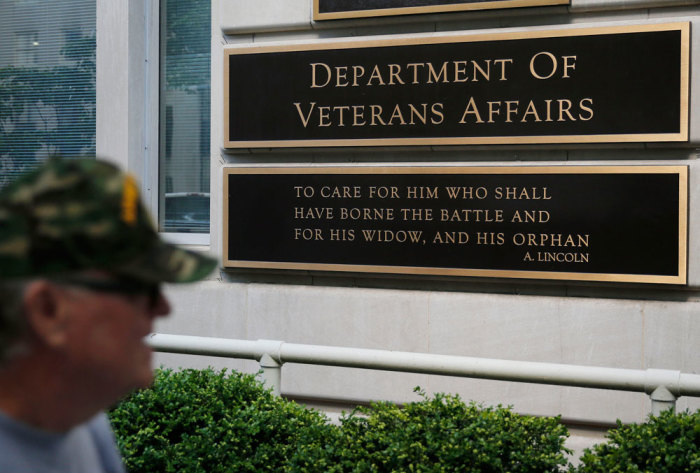State attorneys general warn VA not to perform elective abortions in states with abortion bans

A group of state attorneys general has vowed to take action against the United States Department of Veterans Affairs if its hospitals perform abortions in states where the procedure has become illegal following the U.S. Supreme Court’s ruling in Dobbs v. Jackson Women’s Health Organization.
Mississippi Attorney General Lynn Fitch, a Republican, led a coalition of 14 other state attorneys general in writing a letter to VA Secretary Denis McDonough Thursday. The letter addressed a rule adopted by the Department of Veterans Affairs in September that allows VA hospitals to perform abortions on veterans in cases of rape, incest or to save the life of the mother.
In response to the Dobbsdecision, which determined that the U.S. Constitution doesn't contain a right to abortion, and therefore, states had the authority to ban or place trimester limits on the procedure, the department unveiled an interim final rule that will allow the VA to perform abortions in some cases. In a statement, VA Under Secretary for Health Shereef Elnahal said, “We came to this decision after listening to VA healthcare providers and Veterans across the country who sounded the alarm that abortion restrictions are creating a medical emergency.”
Fitch, who defended her state’s 15-week abortion ban at the center of the Dobbs decision, began the letter by describing the VA's rule as “unlawful,” citing the Veterans Health Care Act of 1992’s explicit prohibition on abortions. Specifically, the law declares that the VA Secretary may provide veterans with “general reproductive health care, including the management of menopause, but not including under this section infertility services, abortions, or pregnancy care.”
“It will not stand in the way of the duly enacted laws of our States or our commitment to enforcing those laws,” said Fitch, adding, “We will watch closely the VA’s use of this rule and we are prepared to act decisively if the VA violates state law, or breaks its pledge that the rule operates only in ‘limited circumstances.’”
“‘Abortion presents a profound moral question’ that is entrusted to ‘the people and their elected representatives’ to address,” Fitch continued, quoting from the Dobbs decision. “Like many of the [Biden] administration’s abortion-related efforts, this new rule is an unlawful attempt to wrest that authority from the people. That attempt will fail.”
Explaining that “state laws restricting abortion ubiquitously include provisions to protect a woman’s life and commonly include exceptions in other circumstances,” the Mississippi Attorney General suggested that “the real motivation behind the rule is to create a mechanism for allowing purely elective abortions that States have appropriately prohibited or to send a signal to the Administration’s political base — or both.”
“We will hold you to the VA’s representations about the rule’s limited application,” Fitch concluded. “We will not allow you to use this rule to erect a regime of elective abortions that defy state laws. We stand ready to move decisively against departures from the rule’s terms or its promises. And we will enforce our duly enacted state laws and hold you accountable for violations of federal law. Those who perform abortions based on the interim final rule — and in defiance of state or federal laws — do so at their own risk.”
Other signatories to the letter included the Republican attorneys general of Alabama, Arizona, Arkansas, Florida, Georgia, Indiana, Kentucky, Nebraska, North Dakota, South Carolina, South Dakota, Tennessee, Texas, Utah and West Virginia. With the exception of Florida and Nebraska, all of the states whose attorneys general signed onto the letter have enacted total or near total bans on abortion following the Dobbs decision although the pro-life laws are tied up in legal action in some states.
Florida bans abortion after 15 weeks gestation, and according to the Guttmacher Institute, Nebraska bans abortions after 22 weeks gestation.
The 15 Republican attorneys general are not the first elected officials to express concern that the VA’s decision to authorize abortion in certain circumstances violates federal law.
Sen. James Lankford, R-Okla., who represents a state that bans abortion, wrote a letter to McDonough over the summer citing the Veterans Health Care Act of 1992 as the ultimate authority governing the VA’s ability to perform abortions.
The VA performed its first abortion under the new rule in late September. The implementation of the new rule followed a request from two dozen Senate Democrats, who rejected the assertion that the agency’s provision of abortions violated federal law. They contended that the Veterans Health Care Eligibility Reform Act of 1996 authorized the VA Secretary to “furnish hospital care and medical services which the Secretary determines to be needed.”
Ryan Foley is a reporter for The Christian Post. He can be reached at: ryan.foley@christianpost.com





























